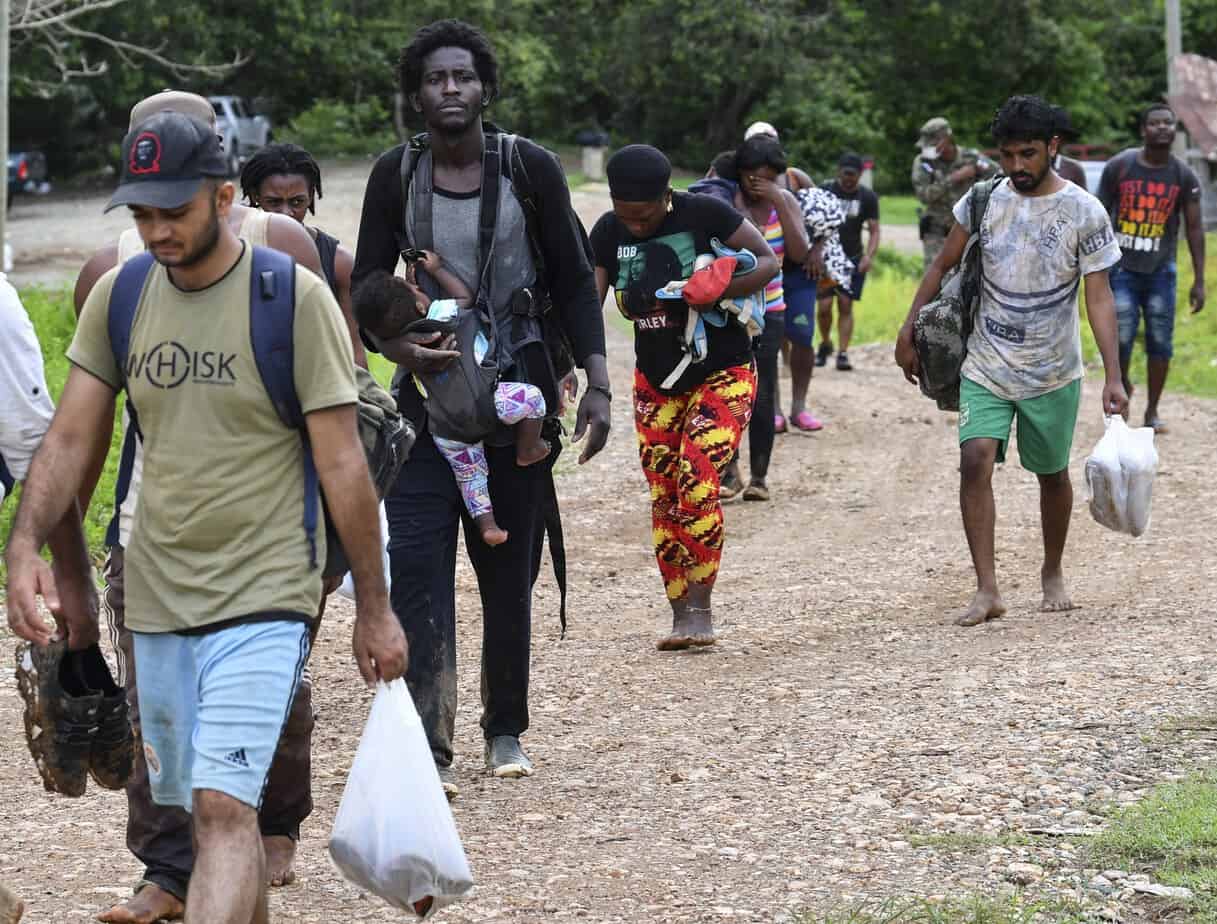The treacherous Darién jungle, a crucial corridor between Colombia and Panama for migrants heading to the United States, has seen a significant decrease in crossings as Donald Trump’s January inauguration draws near. Official figures show a 41% drop in migrant crossings compared to last year, with 300,000 people making the perilous journey in 2024 versus 520,000 in 2023.
The human cost remains stark: 55 migrants have lost their lives in the jungle this year alone, facing dangers ranging from raging rivers and wild animals to violent criminal groups, according to Panamanian President José Raúl Mulino.
Since 2010, approximately 1.3 million people have traversed the Darién Gap, with nearly two-thirds of these crossings occurring in the past two years. The demographic makeup of these migrants is diverse, primarily consisting of Venezuelans, but also including Colombians, Ecuadorians, Haitians, and Chinese nationals. Perhaps most concerning, one-fifth of these migrants are children, some traveling without adult accompaniment.
The decline in crossings comes as Panama implements new measures in cooperation with the United States. A July agreement, backed by $6 million in U.S. funding, has enabled Panama to deport over 1,500 migrants through approximately 40 flights to Colombia, Ecuador, and India. However, Venezuelan migrants are exempt from these deportations due to Caracas’s refusal to accept flights from Panama.
President Mulino attributes the decrease to both the closure of jungle trails and the deterrent effect of immediate deportation. “Risking your life walking for 20 or 21 days out there only to be caught and put on a plane and sent back to where you started, I feel that has been a deterrent factor,” he stated.
However, international organizations caution against overreliance on restrictive measures. Juanita Goebertus, Americas director at Human Rights Watch, emphasized that such policies historically fail to deter those fleeing human rights crises in countries like Venezuela, Haiti, or Ecuador.
The situation is further complicated by political uncertainty in Venezuela. As Nicolás Maduro prepares to begin another term on January 10 – despite international controversy over his election – opposition leader Edmundo González Urrutia, claiming victory in July’s elections, plans to attempt his own inauguration the same day.
Diana Romero, a UNICEF emergency specialist in Panama, notes the human impact of these political shifts: “For families in transit, these types of changes generate uncertainty, anxiety, and concern because many of their efforts to mobilize and seek better status may be truncated.”
President Mulino maintains that the Darién migration crisis will persist until Venezuela’s political and social challenges are resolved. He expressed hope for collaboration with the incoming Trump administration, stating, “I believe this is a point of agreement with President-elect Trump… that’s where they’re going.”
As the region braces for potential policy shifts under Trump’s presidency, many migrant families are reportedly choosing to wait and observe how the political situations in both the United States and Venezuela unfold before risking the dangerous Darién crossing.






